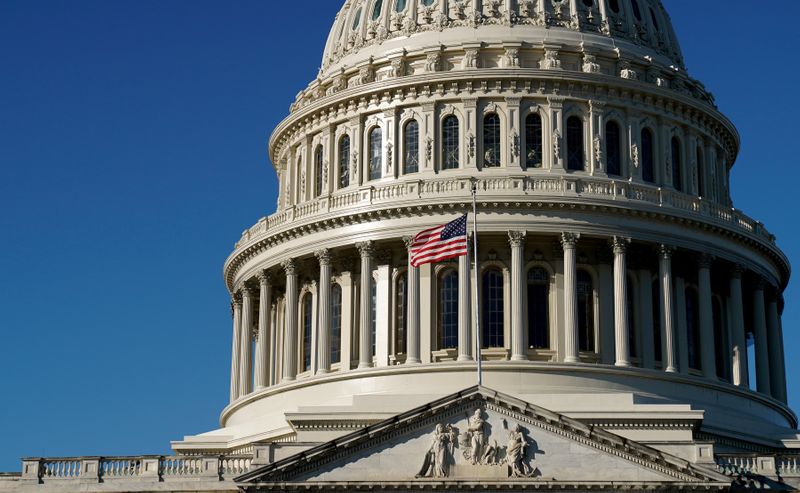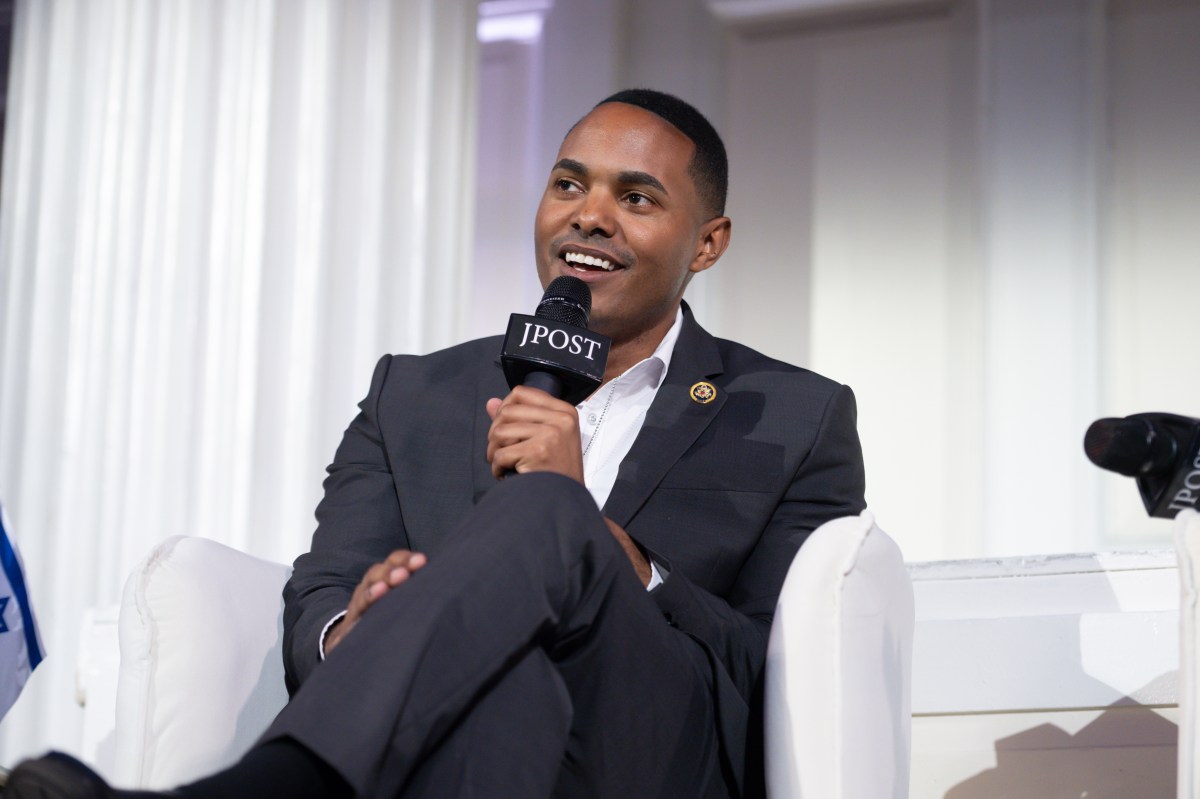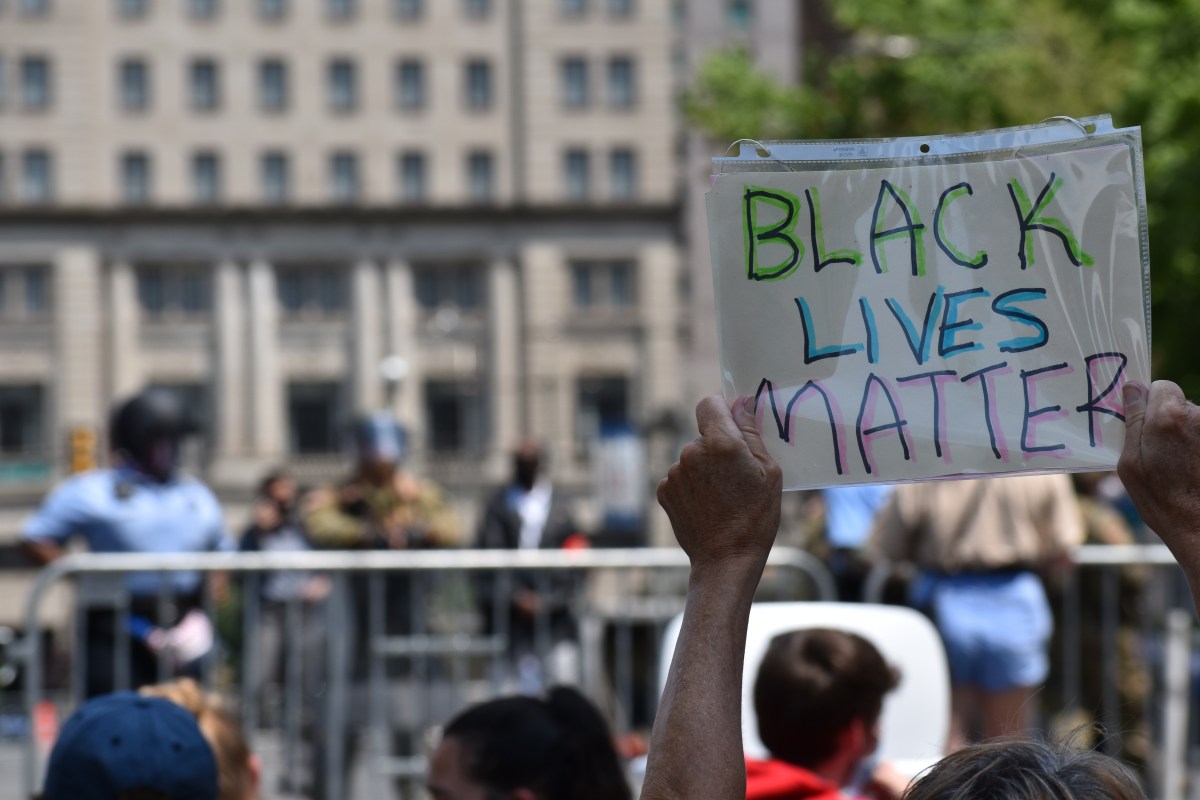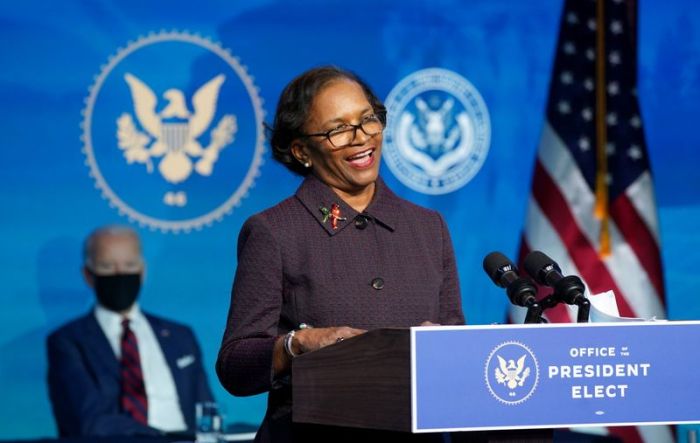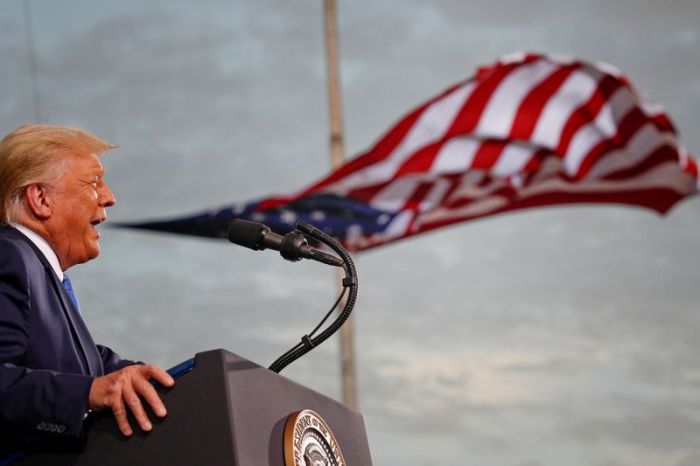WASHINGTON (Reuters) -U.S. lawmakers struggled on Saturday to clear final hurdles to a $900 billion coronavirus aid bill, including a dispute over Federal Reserve emergency lending authorities, pushing any deal closer to a Sunday night government funding deadline.
The U.S. Senate adjourned a rare Saturday session with a call from Senate Republican leader Mitch McConnell to avoid last minute disagreements that could delay new funding for Americans and small businesses struggling with the steep economic and health costs of the COVID-19 pandemic.
“The American people cannot feed their families with, or pay their bills with, Congress’ good-faith discussions. They need us to act,” McConnell said on the Senate floor. “We need to conclude our talks, draft legislation and land this plan.”
Both Republicans and Democrats said the last major sticking point was a Republican push, led by Senator Patrick Toomey of Pennsylvania, for language to prevent expiring Fed coronavirus lending programs from being revived, including credit facilities for mid-size companies and municipal borrowers.
The dispute threatened to cause a breakdown in the negotiations as Toomey was seen having a heated discussion with a small group of colleagues on the Senate floor.
But after a meeting with Senate Democratic Leader Chuck Schumer, Toomey said he did not have a time frame, but “I think that we should be able to get a deal done.”
Senator Bill Cassidy, a Louisiana Republican, told reporters that a possible compromise may be emerging to narrow the focus of Fed language, although he did not provide details.
Republican opponents said Fed lending facilities created under coronavirus aid legislation passed in March are unnecessary government interference in private business and politicizes the Fed. They accused Democrats of wanting to extend them into 2021 as a backdoor way to provide unchecked funds for state and local governments controlled by members of their party.
Democrats in turn accused the Republicans of trying to tie the Fed’s hands in order to limit Democratic President-elect Joe Biden’s options for boosting the flagging economy after he takes office on Jan. 20.
The administration of Republican President Donald Trump, who insists Biden did not win the Nov. 3 election and talks of running again in 2024, said it supports the Toomey initiative.
‘RIGHT WITHIN REACH’
Other lawmakers said that most major issues appeared to have been resolved. The legislation is expected to include one-off $600 checks for most Americans, enhanced unemployment benefits of $300 per week, help for states distributing coronavirus vaccines and more assistance for small businesses.
“We’re right within reach,” Democratic House of Representatives Speaker Nancy Pelosi told members of her party on a call discussing the negotiations, according to a person who was on the call.
Lawmakers are under intense pressure to finish the relief package before a midnight Sunday (0500 GMT Monday) expiration of federal spending authority after a 48-hour reprieve was passed on Friday to buy more negotiating time.
Congressional leaders plan to attach the package to a $1.4 trillion spending bill funding the government through September 2021.
Congress in the spring approved more than $4 trillion in aid, but many of the funds for unemployed workers and small businesses have run out, pushing unemployment higher as COVID-19 has killed 311,000 Americans, by far the most in the world. Economists say growth will likely remain sluggish until vaccines are widely available in mid-2021.
Lawmakers were not sure when a deal would be announced, but no vote was expected before Sunday afternoon. John Thune, the Senate’s No. 2 Republican, said the vote could slip to Monday.
“We’re on the home stretch, we’re on the glide path and I think we’re going to get this done, and help out the American people,” Thune said.
Some other lingering issues on Saturday were disagreements over funding for arts venues closed by COVID-19 restrictions, and the level of emergency money for local governments for supplies like personal protective equipment for schools.
The deal does not include liability protections for businesses from coronavirus-related lawsuits, a provision pushed by Republicans that has long been unacceptable to Democrats. Nor does it include the extensive aid to state and local governments Democrats wanted.
(Reporting by Patricia Zengerle and David Lawder, Additional reporting by Richard Cowan; Writing by Patricia Zengerle and Andy Sullivan; Editing by Andrea Ricci and Grant McCool)

